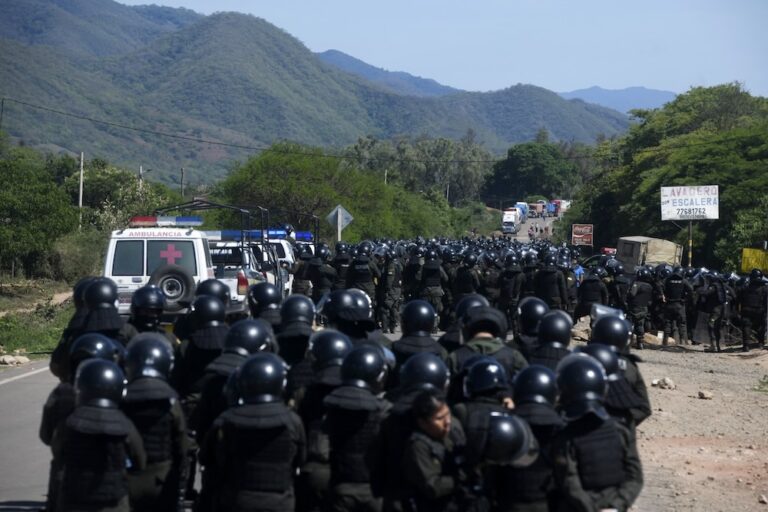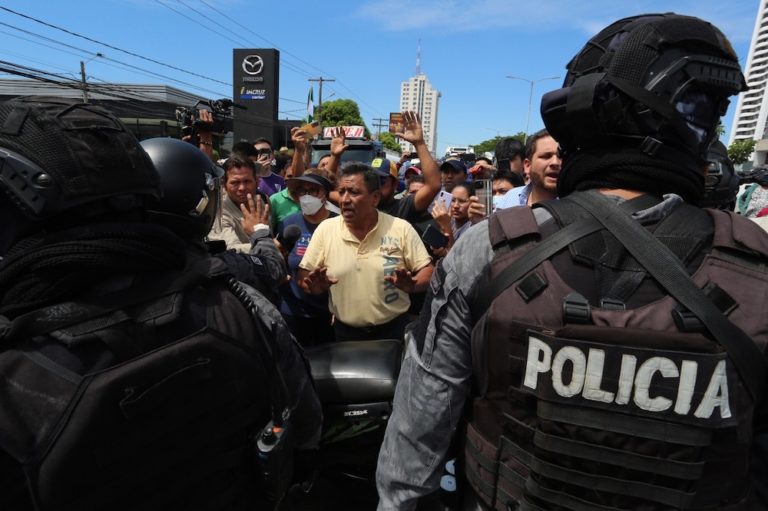(RSF/IFEX) – RSF is stunned by President Evo Morales’ comments, made on 30 January 2008, six days after it was revealed that 18 politicians and a journalist had been illegally spied on. They contradict the reassuring statements about press freedom made earlier by Ivan Canelas, the leader of the ruling Movement to Socialism (MAS) block […]
(RSF/IFEX) – RSF is stunned by President Evo Morales’ comments, made on 30 January 2008, six days after it was revealed that 18 politicians and a journalist had been illegally spied on. They contradict the reassuring statements about press freedom made earlier by Ivan Canelas, the leader of the ruling Movement to Socialism (MAS) block within the House of Representatives (Cámara de Diputados).
“The spying scandal must not exacerbate a fraught political climate that is causing real difficulties for news media of all tendencies,” RSF said. “The opposition is wrong to encourage suspicion that the president is to blame for the spying. The president is wrong to try to defend himself by accusing all the media of spying on him. These accusations are all the more surprising as Canelas, the president’s ally, has been quick to condemn attacks on the press.”
RSF added: “This tension can be avoided, but it means the media must be given real guarantees about the confidentiality of their sources, something that is vital for journalism. Consultations have already taken place between the media and the government on this subject. We reiterate our commitment to promote dialogue.”
On 30 January, Morales accused the media of “paying” members of his personal bodyguard to locate and follow him. He said be felt “spied on” by journalists. His comments were in response to the revelations that 18 politicians, including two parliamentarians from his own party, and pro-opposition journalist Espada of the privately-owned television channel Unitel, had been illegally spied on. Morales denied any role in the spying, which the police department previously blamed on members of the police intelligence service.
The spying scandal has been referred to the Bolivian Senate and House of Representatives. Canelas, a former journalist who now leads MAS in the House of Representatives said he “personally asked the public prosecutor’s office to open an investigation to establish who is responsible for violence and attacks on journalists, so that they are punished.” He has also defended the media’s right to express their views.
There is continuing concern in the media about the intention to “make news and information transparent and to lift the right to confidentiality” which Morales expressed in his message to Parliament on 22 January. On 31 January, the National Press Association (Asociación Nacional de la Prensa, ANP) said that the aim was to undermine the confidentiality of sources and that this posed “a grave threat to free expression and press freedom and society’s right to be properly informed.”


